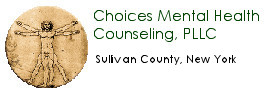Submitted by tomrue on
"Holiday blues," which depending on their duration can rise to the level of seasonal affective disorder, perhaps resembling the experience of Charlie Brown depicted in the 1965 children's holiday classic, A Charlie Brown Christmas, can include sadness, loneliness, depression or anxiety during and around the holiday season. Feeling may be related to a sense of disappointment when it's over, or as visits with loved ones come to an end; or sadness over feeling alone and isolated.
So-called "holiday depression" may occur during any holiday or vacation time, but most commonly happens during the December holidays when everyone else in the world seems to be is celebrating. However, it is equally true that depression can occur at any time and it may seem that no end is in sight unless the person seeks some sort of therapy -- counseling, medication, or a both.
One mode of treatment that has been proven particularly effective for seasonal depression is phototherapy using 10,000-lux full-spectrum lighting. A study by Lam and associates (2006) concluded:
Light treatment showed earlier response onset and lower rate of some adverse events relative to fluoxetine, but there were no other significant differences in outcome between light therapy and antidepressant medication. Although limited by lack of a double-placebo condition, this study supports the effectiveness and tolerability of both treatments for seasonal affective disorder and suggests that other clinical factors, including patient preference, should guide selection of first-line treatment. Lam, et al. (2006). Can-SAD Study: A Randomized Controlled Trial of the Effectiveness of Light Therapy and Fluoxetine in Patients With Winter Seasonal Affective Disorder, American Journal of Psychiatry, Vol. 163, pp. 805–812.
So where there is darkness let there be light!
Symptoms of Holiday Blues:
- Headaches
- Inability to sleep or sleeping too much
- Changes in appetite causing weight loss or gain
- Agitation and anxiety
- Excessive or inappropriate feelings of guilt
- Diminished ability to think clearly or concentrate
- Decreased interest in activities that usually bring pleasure, such as:
- Food
- Sex
- Work
- Friends
- Hobbies
- Entertainment
A Few Links:
- Holiday Depression & Stress National Mental Health Association
- Mental Health: Symptoms of Holiday Blues University of Maryland Medical Center
- The Blues: Holiday or Anyday D.K. Dyer
- Handling the Holiday Blues or a Charlie Brown Xmas Kirsti A. Dyer
- Coping With Holiday Distress: Remember to REST during the Holidays Kirsti A. Dyer
- Mood Disorders links on vitruvian.tomrue.net
